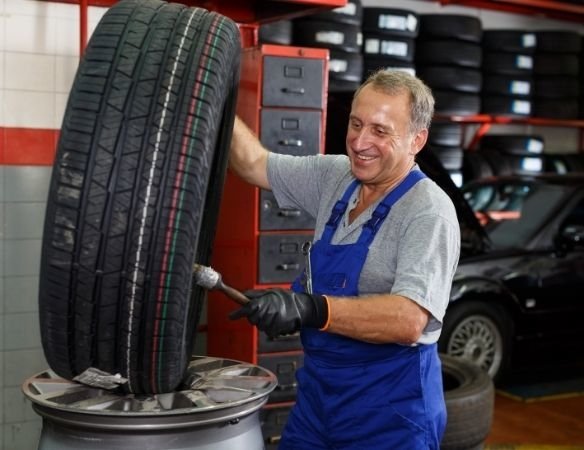Ten Top Tips For Handing Back a Leased or Financed Car

As the clocks countdown to 1st March 2022, car showrooms across the country are preparing for the annual surge of people eager to get their hands on a brand new 22-plate motor. For some, the excitement of owning a new car is tinged with trepidation, the dawning realisation that an existing car must be returned to a lease owner or finance company. As the handover date looms, contractual agreements are retrieved from forgotten files, the small print skimmed for details on penalties for exceeding “fair wear and tear”.
So, to avoid any sweaty-palmed anxious moments, here are our top 10 tips to help anyone preparing to return a leased or financed car.
1. Be proactive in arranging the collection of your vehicle
You can arrange for your car to be collected up to 30-days before your deal expires. While most lease or finance companies will contact you before the date, don’t rely on them to do so.
Giving them up to 10-days working notice before a handover, is the best way to avoid any “failed collection” charges. Running-over your agreement’s end date will not only incur a costly fee, it can also impact your credit score.
2. Get your car looking spick and span
Give your car a good wash and clean inside and out. A cared for car that looks gleaming will avoid potential valeting charges and will less likely attract suspicious scrutiny for hidden masked damage.
3. Check bodywork for scratches, chips and dents
According to the British Vehicle Renting and Leasing Association (the BVRLA) a leased or financed car’s permissible wear and tear damage includes:
· No more than two small dents (up to 15mm long) per panel, with none on the roof and no broken paint surfaces.
· Chips of 3mm or less are allowed, provided they are not rusted. Up to eight chips are permitted on any forward-facing panel.
· A maximum of 4 scratches up to 25mm per panel is allowed, but there should be no bare metal showing and no difference in paintwork colour.
· Scratching on internal surfaces, sills, seals and threads reflective of normal use are allowed. But there should be no upholstery or roof-trim tears, rips, or burn marks and seats should be clean and odourless.
If you think you’ve incurred damage exceeding the above, getting a repair from a reputable supplier may be a cheaper option that paying a penalty via the finance provider. We suggest checking with a specialist like Dent Wizards, who use advanced dent and scratch removal techniques, using non-invasive paintless techniques. Furthermore, MotorEasy members qualify for a 10% discount with Dent Wizard.
4. Check tyres are legal
Tyres, including any spares, should not be damaged and must have the legal limit of 1.6mm across the full width. There must be no damage to sidewalls or tread. If you’re handing a car back with illegal tyres, your finance company may well hit you with a costly replacement bill, including admin costs. So, to keep costs down, consider replacing them yourself, making sure to adhere to any stipulations for like-for-like tyres. You can compare costs for tyres and fittings using our tyre comparison tool, MotorEasy Tyres.
5. Alloy wheels
Excessive damage, kerbing or scuffs could well incur a repair bill. While scuffs up to 50mm in the total circumference of the wheel are acceptable, there should be no dents on wheel rims and no damage to the wheel spokes or facia.
Again, if you think you’ve fallen foul of these standards, consider getting a repair quote from a reputable specialist like Wheelwizard. As well as offering a 10% discount to MotorEasy members, they can also arrange repairs at your home or place of work.
6. Check for windscreen and lights damage
No chips, cracks or holes on the lights or windscreen. Light windscreen scratches are permissible providing they do not impair driver vision. You may be penalised for damage exceeding 10mm in the driver’s line of vision or in excess of 40mm elsewhere.
7. Controls and audio
Make sure all controls, audio equipment and accessories are functioning correctly.
8. Mileage
All private finance agreements come with an annual mileage allowance that you sign-up to when you take out the car. Check that you are within these limits, in some cases you might be due some cashback if under. If over, be prepared to cough up between 3p to 30p per mile.
9. Servicing
In most cases, your finance or lease policy will require your car to adhere to the manufacturer’s servicing or maintenance schedule. Make sure you have the date-stamped record that servicing has taken place and the servicing book (if supplied) is ready to hand back.
If you need to squeeze in a quick service to meet your schedule obligations, you can purchase Manufacturer approved servicing through Motoreasy, with savings up to 40% below main dealer prices.
10. Keys
When you get to the car collection date, make sure you have all sets of keys ready to handback; replacement keys can be costly.
The MotorEasy account area has further details on recommended repairers and fitters, should you need to fix-up your car in advance of the handover.
Finally, if you’re taking delivery of a brand-new vehicle, think about planning ahead to ensure you avoid any hassle when you come to return it in 2 to 4-years’ time.
Taking out alloy wheel and cosmetic insurance can be a cost-effective way to guard against future damage, with a MotorEasy policy allowing several claims in any one year. MotorEasy service plans are also a good way to adhere to finance or lease agreements on Servicing schedules. Before you get lured into a main dealer plan, make sure you get an equivalent quote from MotorEasy, often at a fraction of the price of equivalent manufacturer scheme.






